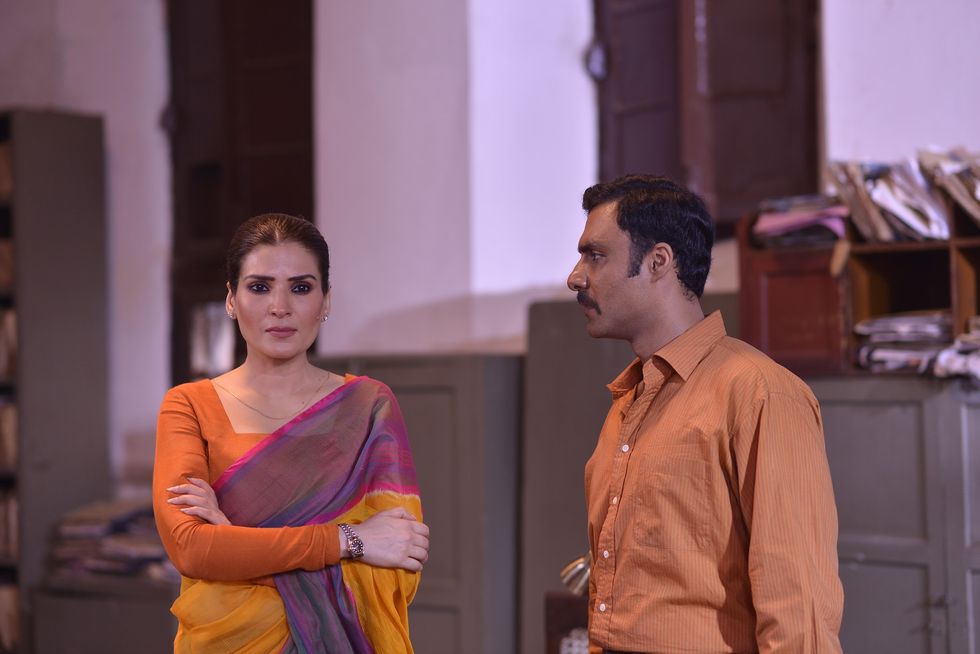FROM small taboo-busting independent films like Joyland to record-breaking blockbuster The Legend of Maula Jatt, Pakistani cinema has been on the rise in recent years.
Forthcoming film Gunjal looks like adding to that momentum, with the Pakistan-set story based on real events of child labour activist Iqbal Masih, who was brutally murdered in the 1990s. By cleverly combining the issue of child labour with an investigation, the multi-layered movie is attempting to connect with a wide international audience.
Eastern Eye caught up with US-based producer Nighat Shah to discuss Gunjal, the issues it deals with and child labour.
What connected you to filmmaking?
I stumbled into filmmaking by chance. In 2020, I produced the short film Darya Kay Iss Paar (This Bank of the River) to raise awareness about mental health. Its success encouraged me to become a filmmaker.
What inspired you to produce the new film Gunjal?
Child labour is something I find deeply troubling. Even though I didn’t personally witness child labour while growing up in the village of Chitral, Pakistan, I became aware of the stark reality when I moved to the city for higher education. I witnessed young children working in restaurants and as domestic help, even taking care of children their own age. It became clear that this was not just an isolated occurrence, but a widespread problem fuelled by societal norms. Instead of attending school, these children were toiling away in other people’s homes.
What led that towards making a movie about it? As
I delved deeper into the issue, I discovered that child labour extended far beyond domestic settings. It permeated factories, restaurants, and fields. As of 2022 data, 160 million children are engaged in child labour globally, a rise of 8.4 million since 2016, with nearly half (79 million) involved in hazardous work jeopardising their safety – an increase of 6.5 million over the same period, according to the International Labour Organisation. Even in the US, certain states are relaxing child protection laws, which is like a step backwards. As a responsible adult and filmmaker, I was compelled to bring this issue to the forefront and share it with a broader audience.
Tell us about the film...
My new movie Gunjal is a fictional narrative inspired by real events in Iqbal Masih’s life. Gunjal revolves around Shahbaz Bhatti, investigating the murder of the child labour activist in 1990s Pakistan. Flashbacks and narratives engage viewers, providing a fresh perspective on child labour and justice.
What drew you to this story?
As a mother, the story resonated with me. I imagined the situation of a mother who sells her child into servitude. Also, people like to hear about a hero’s journey, and Masih’s story is heroic. I recognised its potential to connect with audiences and provoke meaningful discussions.
What inspired the interesting title?
The title Gunjal means entangled, representing the story’s web of truth and justice.
What was the biggest challenge of making this film?
It was my first feature film and my director Shoaib Sultan’s. I was the sole financier and producer. We faced numerous hurdles, from shooting in the scorching heat of Lahore and scheduling to managing post-production work across different time zones in Pakistan, India, and the United States simultaneously. Overcoming these challenges required dedication, resource allocation, and teamwork, underscoring the importance of perseverance and collaboration in filmmaking.

Tell us about some of the issues this film covers?
Gunjal tackles injustice, child labour, and society’s tendency to overlook problems. The film aims to foster understanding, empathy, hope, and dialogue.
How important was it for you to get a strong cast?
It was crucial to assemble a cast that could effectively portray the complexities and nuances of the story, and I am delighted that our actors have delivered outstanding performances.
Could you share a favourite moment from the film? One favourite moment is when the young protagonist, upon learning he cannot become president, responds with resilience, saying, “I will fight for our rights because we only want equality”.
Who do you hope connects with this film?
I hope this film resonates with individuals who appreciate thought-provoking storytelling, sparking conversations and reflection.
Pakistani cinema has been successful in recent years, what do you think is the root of that?
Pakistani cinema’s recent success can be attributed to talented filmmakers, improved production values, diverse narratives, increased audience engagement, and digital platforms.
What can we expect next from you?
I am developing my next project in collaboration with another filmmaker, focusing on a social cause.
Why should we all watch this film?
Led by compelling performances from Ahmed Ali Akbar, Amna Ilyas, Resham, Ahmed Ali Butt and Syed Muhammad Ali, Gunjal aims to challenge perspectives through its narrative. By exploring meaningful social issues, the storytelling invites conversations and lasting impact.
Why do you love cinema?
Cinema, for me, is a medium of expression and connection. It transcends barriers, evokes emotions, challenges perspectives, and inspires change.












